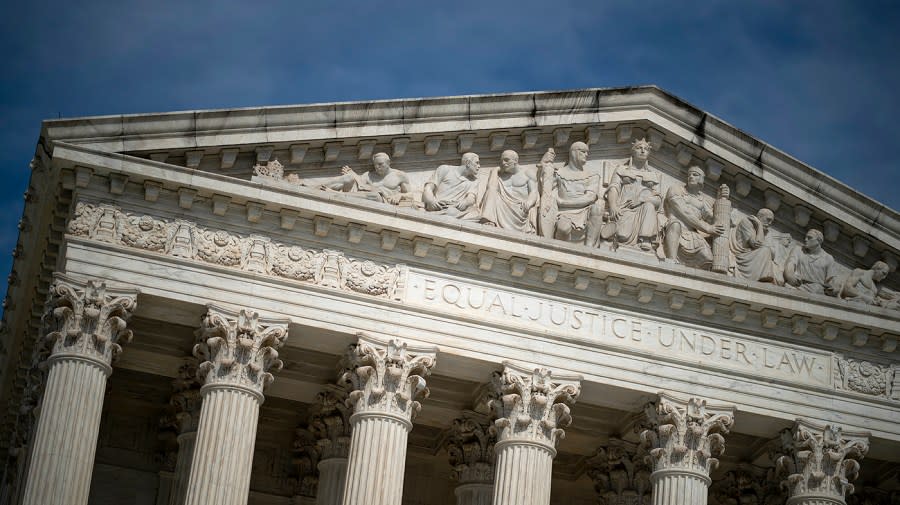Supreme Court temporarily halts EPA rule that limits interstate pollution

The Supreme Court voted 5-4 to halt the Environmental Protection Agency’s (EPA) “Good Neighbor Rule,” which regulates interstate air pollution, in a ruling Thursday, the latest move by the conservative-dominated court against the environmental agency’s regulatory authority.
In the majority opinion, Justice Neil Gorsuch granted a request from Ohio, Indiana and West Virginia to temporarily block the rule while litigation against it proceeds through lower courts. Gorsuch, whose mother, Anne, was EPA administrator under President Reagan, wrote that “we see one reason for caution after another” in allowing the rule to proceed.
He pointed to the fact that “at oral argument, even the government refused to say with certainty that EPA would have reached the same conclusions regardless of which States were included in the [Federal Implementation Plan].” The rule would have affected 11 of 23 states, with the remainder already tied up in separate litigation.
Justice Amy Coney Barrett joined the court’s three liberals in opposing the stay, writing in a dissent that a stay “enjoins the enforcement of a major Environmental Protection Agency rule based on an underdeveloped theory that is unlikely to succeed on the merits.”
EPA Administrator Michael Regan told The Hill he was “disappointed” by the ruling and that the agency is confident in its defense of the rule in the lower court. He added that the ruling comes at “the worst possible time” as summer weather leads to increased ozone pollution and asthma attacks.
“We believe that states should take responsibility and not pollute neighboring states,” he said. “Pollution doesn’t respect borders.”
In February, the court heard a lawsuit brought by the three states and industry groups against the rule, which imposed limits on upwind states’ production of downwind pollution. Under the federal Clean Air Act, states have the authority to craft their own interstate pollution plans, but the EPA also has the authority to override those plans it deems insufficient.
The court’s conservatives signaled skepticism about the Biden administration’s case in the February oral arguments, with Justice Brett Kavanaugh noting that, at the time of the arguments, lower courts had already blocked the rule in more than half of the 23 states to which it applied.
The court’s liberals, meanwhile, questioned the state of Ohio’s argument that it had not been given enough time to comply, noting the states had until 2026 to comply. Justice Ketanji Brown Jackson noted that the plaintiffs were seeking a high court decision before lower courts had ruled, while Justice Sonia Sotomayor suggested they were “rush[ing] to us on an incomplete record.”
“This case is about basic fairness — it’s not fair to force people in downwind states to breathe unhealthy air simply because polluters in upwind states refuse to install and operate basic air pollution controls,” Sierra Club senior attorney Zachary Fabish said in a February statement. “Congress directed EPA to ensure that states are being good neighbors, and that’s what the Good Neighbor Plan does. The Supreme Court must not interfere with the implementation of a life-saving and cost-effective plan to reduce air pollution at the behest of polluting industries and states.”
The Sierra Club blasted the ruling in a statement on Thursday.
“Contrary to what some of the Justices seem to believe, human lives are infinitely more important than corporate compliance costs with basic, decade-old air pollution standards,” Sierra Club Chief Energy Officer Holly Bender said. “Our most vulnerable are at risk from this dangerous pollution crossing from one state to another, and that the Court is turning away from an approach to protecting air quality it itself had blessed just ten years ago should concern us all.”
— Updated at 1:27 p.m.
Copyright 2024 Nexstar Media, Inc. All rights reserved. This material may not be published, broadcast, rewritten, or redistributed.
For the latest news, weather, sports, and streaming video, head to The Hill.


